We’ve researched into some of the most common FAQs in digital marketing, to bring you answers based on professional knowledge and experience. In this blog, we’ll provide you with guidance around some grey areas including social media, blogs, SEO and ROI.
Q: Which social media platforms should I be directing my efforts to?
A: The answer to this question is dependent on your business goals and audience. Each social media platform is great for different purposes, but ultimately you need to start with identifying where your audience is and what platforms they engage on. Think about what your customer demographics are, from age, gender, behaviours and interests, to job title, location and income.
From our experience and studies of social media demographics, there are some common patterns of types of people using different social media platforms. You can use your audience research to identify which social media platforms they are likely to be active on. Remember though, this may not be the same for everyone and you will identify your own patterns and what platforms work best for your business through trial and error.
Instagram: Younger audience (18-29), mainly female users, popular for lifestyle and creative users and businesses
Twitter: Many users are highly educated, very few older users, no difference in gender use
Facebook: Mainly female users, users of all ages, most target audiences are on Facebook
LinkedIn: Students, professionals and high earners, slightly more male users, ideal for Business to Business marketing
Pinterest: Highly saturated with female users, those living in urban areas, creative and productive users looking for inspiration
Use this information to target your content to the right platforms and reach your audience. Pay attention to what works and focus more of your efforts there! Whichever platforms you choose to have a presence on, always make sure they’re optimised for optimum results. Read our tips for quick and easy social media optimisation.
Q: What are the real benefits of a blog?
A: Having a blog page on your website and regularly adding new content can prove highly beneficial for your business – and it’s free, so it’s a no brainer! A blog page provides search engines with relevant content to index which boosts your search engine rankings; making sure you include plenty of keywords in your blog content will give you a better chance of showing up in the relevant searches too.
A blog provides you with content to use on social media to engage your audience, as well as providing a link for people to visit your website or share with others. This will not only drive traffic to your site and increase your engagement, but it will also allow you to connect with your current and potential customers whilst providing them with relevant conversational information that they’re interested in, which is a massive value add.
And, not forgetting brand awareness! This is extremely important in marketing; no matter what your goal, brand awareness will always help you to get there quicker. Blog content shows people the personality and standards of your business, which helps them to trust that you’re a professional company with industry knowledge and character; the type of company people remember, recommend and buy from!
In a nutshell, the benefits of a blog are invaluable to your business, and you’re bound to see results. So, if you haven’t already got one, start now! Seriously.
Q: How do I measure the success of my digital marketing efforts?
A: Whatever you want to achieve through your marketing, you want to see a Return on Investment (ROI). This means assessing the return on your time, effort and money. For example, if you were to spend £300 on paid advertising and got 0 leads or clicks, you haven’t seen a good return on your investment.
Seeing results from your efforts can take time, and that’s okay! It’s not a race. Sometimes, it will take time to see your efforts start paying off. This can be frustrating but through persistence, you will start to see the results you want.
Ask yourself: What do you want to achieve? You should have business goals and targets to measure success, which we recommend including in your marketing strategy. There’s little point investing into something that doesn’t have measurable results. For loop every activity you plan to carry out, make sure you have a measurable outcome. For example, the success of social media might be measured by followers or likes. Paid advertising should achieve more in sales or activity than money spent. A successful blog should have a low bounce rate and high click through rate.
Ultimately, in some way or another, your marketing efforts should be driving people to your website and creating leads that turn into customers.
Q: What kind of advertising should I spend my budget on?
A: When deciding what paid advertising to spend your marketing budget on, you want to get it right! Pay Per Click (Google) advertising and social media advertising can both be extremely valuable for your business, however there is a main difference between them. Facebook or other social media advertising is best for brand awareness, whereas Google advertising is best for sales and conversions. This is because Facebook ads are shown to people based on their demographics and interests, whilst Google ads are shown to people they search for a specific thing using the keywords you have selected, meaning they are likely to visit your website with intent.
Generally, Facebook advertising is the more inexpensive option, however Google usually has a higher conversion rate. If you’re not sure, or just starting out with paid advertising, we’d recommend trialling a campaign on each platform and analysing the return on investment. If you don’t have the budget to do this, think about what you want to achieve.
To raise awareness and get your product or company in front of a high volume of relevant users, Facebook is your best bet. Google Ads is best for you if you want to make sales.
Q: How can I get my business to rank higher on Google quickly?
A: If you’re finding that your website isn’t ranking as high as you’d like it to on search engines for your desired search terms, you have some optimising to do! This doesn’t have to be difficult, or time consuming. Here are some things you can implement quickly to help boost your Google ranking.
- Find the keywords that you aren’t ranking high for and want to improve. Make sure they have high search volumes and are genuinely relevant to your website and its content. Once you’ve identified which ones you want to rank higher for, optimise your website to include them. Make sure your headings, subheadings, meta descriptions, content, images and URLs contain targeted keywords. Be aware that you shouldn’t start keyword stuffing (obvious overuse of a keyword) because Google will penalise you for this, and it could have the opposite effect.
- Alt text your images if you haven’t already. Doing this optimises the images on your site, which can help with your SEO. When doing this, make sure you’re clearly describing the image, using keywords sporadically, avoid taking up your alt text with ‘picture/image of…’, and keep it under 125 characters where possible.
- Make sure your website is mobile friendly. You can check this quickly here. If there are issues with the compatibility of your website with mobile devices, then address this immediately. This will almost certainly be having a negative impact on your search engine rankings.
- Add relevant content to your website with regular blogs including your keywords.
- Check the speed of your site. Slow site speed has a negative impact on SEO! Fix any errors or areas for improvement to make sure search engines can easily crawl your site and index your pages.



